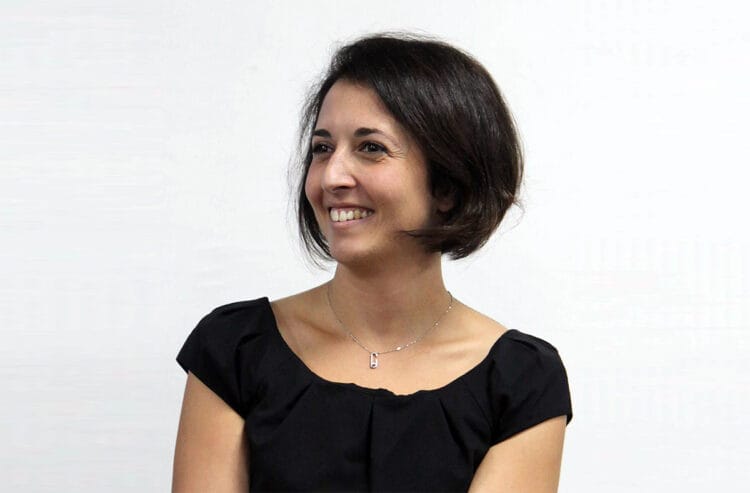OP-ED: Inside Morocco’s startup ecosystem with Salma Kabbaj
Moroccan tech accelerator co-founder and CEO, Salma Kabbaj, offers a glimpse into the evolving startup landscape in Africa's fifth-largest economy.

A year ago, I visited Morocco for the first time. I was touched by the warm welcome from some of the everyday locals and equally amused by their curiosity about what life in “Africa” was like.
Meanwhile, just a few weeks ago, I found myself in conversation with a sharp South African analyst who, while discussing early-stage tech ventures across the continent, casually referred to the vast space north of South Africa as “Africa”. (Interestingly, he wasn’t even referring to anywhere north of the Sahara.)
Now, to be fair, having visited just two North African countries so far—Morocco and Tunisia—I can say that my experiences revealed a region that, in many ways, feels worlds apart from even its closest Sub-Saharan neighbours. The differences in language, culture, and the complex, often tense, relationship with European and Middle Eastern markets have profoundly shaped the aspirations of the region's brightest innovators across the urban, peri-urban and rural areas I was fortunate to explore.
It's clear that moving beyond awkward oversimplifications and stereotypical notions is essential on both sides of the Sahara if we are to foster meaningful cross-continental socioeconomic collaboration.
In Marrakech, Morocco's fourth-largest city—renowned for its vibrant culture, historic architecture and bustling markets—I had the pleasure of sitting down with Salma Kabbaj, co-founder and CEO of Impact Lab, a Moroccan startup accelerator with Pan-African ambitions.

Our African Pre-seed podcast conversation provided fresh insights into a tech ecosystem that is as promising as it is challenging.
Impact Lab, which has been supporting startups since 2015, runs incubation and acceleration programmes and offers consulting services for corporates and public institutions looking to foster tech-driven innovation. It’s at the heart of Morocco’s fledgling startup scene, which, as Kabbaj explains, is nearing a critical juncture after a decade of groundwork laid by a determined few.
I learned that Moroccan startups, especially those focused on B2B, often find themselves gravitating towards Casablanca—the country’s heaving corporate hub—where most of their potential clients are based. Even though, as far as Kabbaj is concerned, it may not be the most appealing city in the country to live in, Casablanca is where the deals happen.
For Kabbaj, the real opportunity for investors in Morocco lies in the gradually maturing ecosystem—albeit at a slower pace than some might expect. Over the past decade, Morocco has cultivated a modest pipeline of early-stage startups, some of which are said to be on the verge of significant breakthroughs. Crucially, unlike more developed ecosystems like Egypt or Tunisia, these ventures have not been burdened by inflated valuations. This presents discerning investors with a unique window of opportunity—to enter the market before the anticipated acceleration takes hold.
However, Morocco’s startup scene is not without its challenges. Unlike, say, Tunisian tech entrepreneurs who benefit from substantial government backing, Morocco’s startup founder community has largely been championed by small ecosystem catalysts. While public entities have only recently begun to show interest, Morocco still lacks a cohesive national startup support strategy. This gap has made it harder for startups to scale at the rate expected by international investors, and as Kabbaj points out, it has created a need for investors to adopt a more patient, hands-on approach. Perhaps impact investors who are inclined to label their efforts as R&D?
Kabbaj highlights that Morocco is a tough market for startups to gain traction in—particularly those targeting the local market. She is vocal about the need for Moroccan founders to think globally from the outset and is frustrated by seeing talented entrepreneurs exhaust their time and energy trying to make their businesses work solely within Morocco. Instead, Kabbaj urges founders to have the ambition to think beyond national borders. Evangelising this sensibility is no easy feat given the cultural and educational barriers that often deter risk-taking and fail to promote entrepreneurship as a viable career path. As she notes, Morocco’s French-influenced education system places a strong emphasis on stable, government jobs, which are still seen as the ideal career option by many young Moroccans.
However, Kabbaj has seen a shift over the years. When Impact Lab first started its programmes, entrepreneurship was very much a plan B for most people—a fallback option when traditional employment didn’t pan out. But today, more and more talented young people are choosing to build businesses, often at the expense of taking the more conventional, secure professional route. Yet, the ecosystem still has a long way to go in terms of fostering a suitably nuanced entrepreneurial mindset and consistently delivering business success stories that inspire the next generation of founders.
Kabbaj herself is deeply passionate about spreading the word about these success stories, particularly the ones that have managed to attract international attention. Companies like Chari and Freterium, which have raised significant funds, also serve as regional flagships for real-world socioeconomic impact. In her view, these ventures prove that it's possible to build something globally relevant in Morocco, despite the odds.
Kabbaj’s perspective on Morocco’s startup scene paints a picture of a market on the verge of breaking out but in need of a thoughtful, market-relevant blend of venture support and investment. Sounds like “Africa” to me.
Editorial Note: A version of this opinion editorial was first published by Business Report on 26 August 2024.

